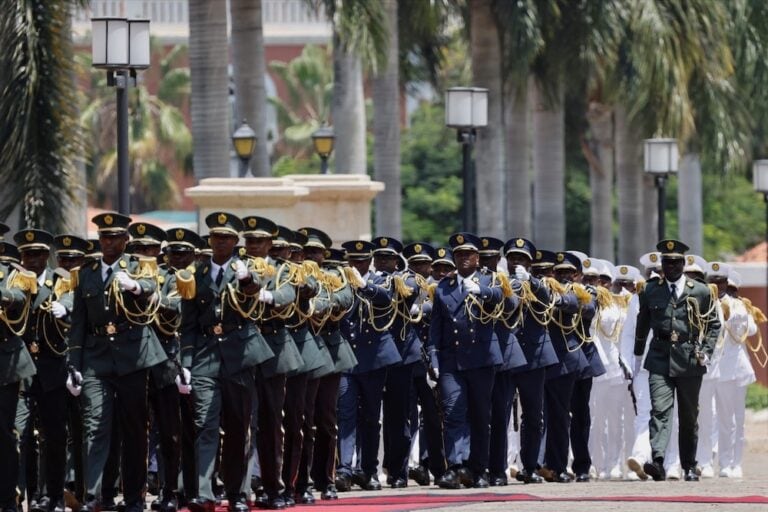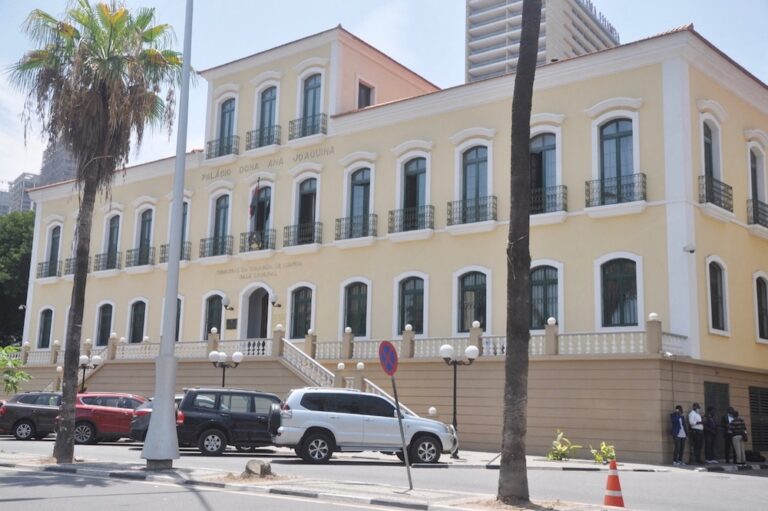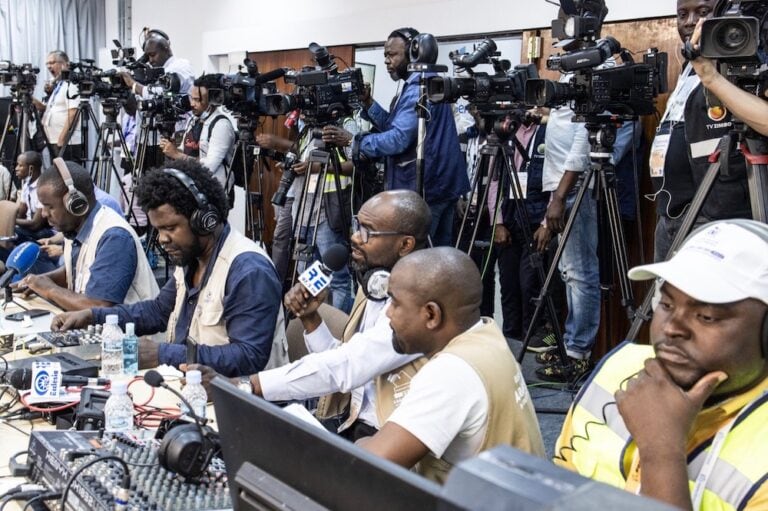(RSF/IFEX) – RSF condemns the 30-day prison sentence passed by a criminal court in the southwestern city of Namibe on 28 December 2007 against Armando Chicoca, a correspondent of the privately-owned radio station Radio Ecclesia, following his arrest during a demonstration by street vendors six days earlier. “Chicoca’s arrest and conviction seem to have been […]
(RSF/IFEX) – RSF condemns the 30-day prison sentence passed by a criminal court in the southwestern city of Namibe on 28 December 2007 against Armando Chicoca, a correspondent of the privately-owned radio station Radio Ecclesia, following his arrest during a demonstration by street vendors six days earlier.
“Chicoca’s arrest and conviction seem to have been a case of the authorities punishing a journalist who is a nuisance, rather justice being administered in a fair and proper manner,” the press freedom organisation said. “The appeal filed by the defence must be heard quickly and the judicial authorities must see that Chicoca has no place in jail.”
The court dismissed a charge of inciting revolt, but found Chicoca guilty of “disobeying state authority.” He was ordered to pay 17,000 kuanzas (approx. 170 euros) in court costs and given a one-month sentence. His appeal is to be heard by the Supreme Court.
Chicoca was arrested near a market in Namibe on 22 December while interviewing the owners of stalls that were being demolished by the police. The authorities accused him of failing to respect a police security cordon and urging protesters to throw stones.
The protests were staged by street vendors objecting to an order issued by provincial governor Boavioda Neto on 10 December to dismantle unauthorised markets and force vendors to move to a new location which they say is too small. The police used force to disperse the demonstrators.
While conducting his interviews, Chicoca was grabbed by the police, his equipment was seized and he was escorted to a police station. From there he was taken to Namibe prison, where he was unable to see a lawyer until he appeared in court for the trial on 28 December.
Raul Mangueira, a lawyer who heads a regional human rights commission, said after attending the trial that the prosecution failed to produce evidence in support of the charge of disobeying state authority.


